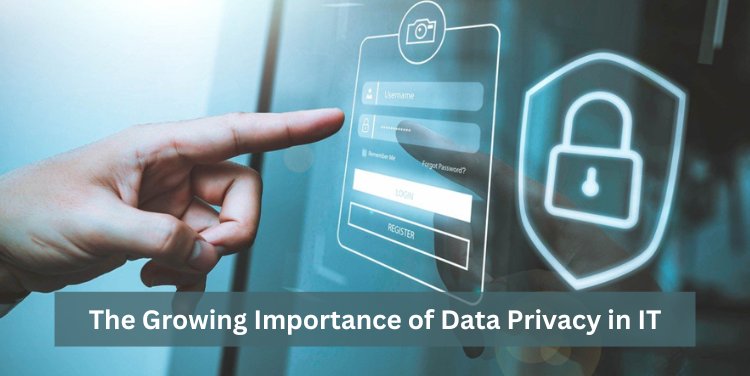The Growing Importance of Data Privacy in IT

In today’s digital era, data privacy has become a critical concern for individuals, businesses, and governments. With the increasing reliance on digital platforms, protecting sensitive information has never been more crucial. The IT industry, in particular, is at the forefront of this transformation, ensuring secure data handling and compliance with evolving regulations.
Why Data Privacy Matters
Data privacy is essential for safeguarding personal and organizational information from unauthorized access, misuse, and breaches. The consequences of data breaches can be severe, including financial losses, reputational damage, and legal consequences. With the rise of cyber threats and sophisticated hacking techniques, IT professionals must implement robust data privacy measures to mitigate risks.
Regulatory Landscape and Compliance
Governments and regulatory bodies worldwide have introduced stringent data privacy laws to protect users. Some of the most notable regulations include:
-
General Data Protection Regulation (GDPR) – Implemented in the European Union, GDPR enforces strict rules on data collection, processing, and storage, ensuring transparency and user control.
-
California Consumer Privacy Act (CCPA) – This law grants California residents greater control over their personal data and imposes penalties for non-compliance.
-
Health Insurance Portability and Accountability Act (HIPAA) – A U.S. regulation that ensures the confidentiality of medical records and health information.
Organizations must comply with these regulations to avoid hefty fines and maintain customer trust.
Key Challenges in Data Privacy
Despite advancements in security measures, IT professionals face several challenges in ensuring data privacy:
-
Data Breaches – Cybercriminals constantly develop new tactics to exploit vulnerabilities and gain unauthorized access to data.
-
Third-Party Risks – Many businesses rely on third-party vendors, increasing the risk of data exposure through weak security practices.
-
Balancing Privacy and Innovation – Companies must find a balance between collecting data for business growth and respecting user privacy.
-
Evolving Cyber Threats – With the rise of AI-driven attacks, IT teams must stay ahead with proactive security measures.
Best Practices for Enhancing Data Privacy
To address these challenges, organizations should implement the following best practices:
-
Data Encryption – Encrypting data ensures that even if it is intercepted, it remains unreadable to unauthorized parties.
-
Access Controls – Implementing role-based access control (RBAC) limits data access to only authorized individuals.
-
Regular Security Audits – Conducting routine security assessments helps identify and mitigate vulnerabilities.
-
Employee Training – Educating employees on data privacy policies reduces the risk of human error leading to data breaches.
-
Adopting Privacy by Design – Integrating data protection measures into system development from the outset ensures long-term security.
The Future of Data Privacy in IT
As technology continues to evolve, data privacy will remain a top priority for IT professionals. With increasing awareness among consumers and stricter regulations, businesses must adopt a proactive approach to data protection. Emerging technologies such as blockchain, artificial intelligence, and zero-trust security models will play a significant role in enhancing data privacy in the coming years.
In conclusion, data privacy is no longer just an option but a necessity in the IT industry. Organizations must take a holistic approach to safeguarding data, ensuring compliance with regulations, and building a culture of trust among users. By prioritizing data privacy, businesses can not only protect themselves from cyber threats but also enhance their reputation and customer loyalty.
What's Your Reaction?















